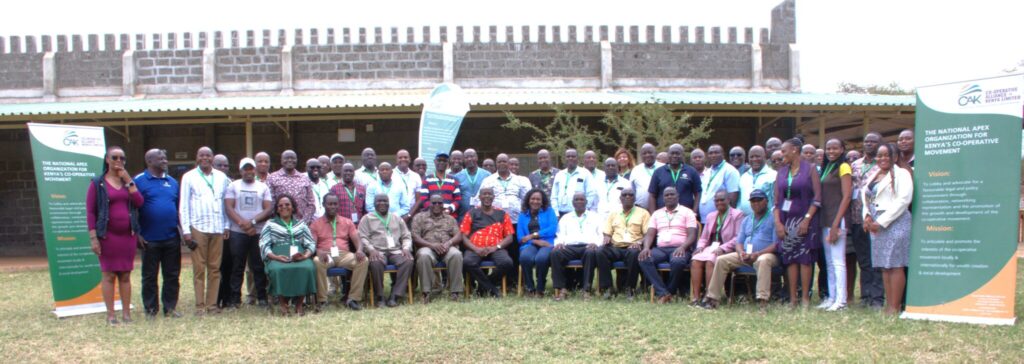Savings and Credit Cooperative Organizations (SACCOs) are being encouraged to adopt sustainable reporting as part of efforts to strengthen climate risk management, enhance transparency, and build long-term customer confidence.
SACCOs have been instrumental in driving financial inclusion across Kenya by mobilizing savings and supporting cooperative development. However, as global challenges such as climate change intensify, there is growing pressure on financial institutions to align their operations with sustainable practices.
Sustainable reporting is no longer viewed as optional but as a critical market requirement. It positions SACCOs to compete more effectively with commercial banks while also addressing the needs of a dynamic and youthful population. With close to 70 percent of Kenya’s population under the age of 20, there is a clear demand for financial services that reflect modern values, including environmental consciousness and good governance.
By integrating sustainability into their operations, SACCOs can open new business opportunities and improve the value of their products. Such reporting frameworks also play a vital role in curbing malpractice within boards of management by promoting accountability, strengthening supervisory roles, and aligning business strategies with long-term goals.
Weak capacity, inadequate monitoring, and inconsistent compliance practices have been recurring challenges for SACCO boards. Sustainable reporting can help address these gaps by embedding governance, risk management, and environmental responsibility into overall business strategies. This approach enhances confidence not only among members and depositors but also among regulators and development partners.
Embedding sustainability reporting within business plans further ensures that cooperatives meet both local and international standards. By integrating climate change considerations, audit structures, supervisory roles, and workforce development, SACCOs can deliver stronger outcomes and build resilience in a rapidly evolving financial environment.
In addition, the adoption of sustainability practices enhances transparency and supports the execution of strategic business plans. Effective supervisory and audit committees, when empowered, can better address emerging challenges and reinforce accountability.
Training and capacity building remain essential in equipping directors and senior managers to embrace sustainable practices. By strengthening leadership structures, SACCOs will be better positioned to respond to changing business dynamics while safeguarding member resources.
As Kenya’s cooperative movement continues to drive socio-economic development, embracing sustainability reporting is a crucial step in ensuring long-term growth, resilience, and trust within the sector.

